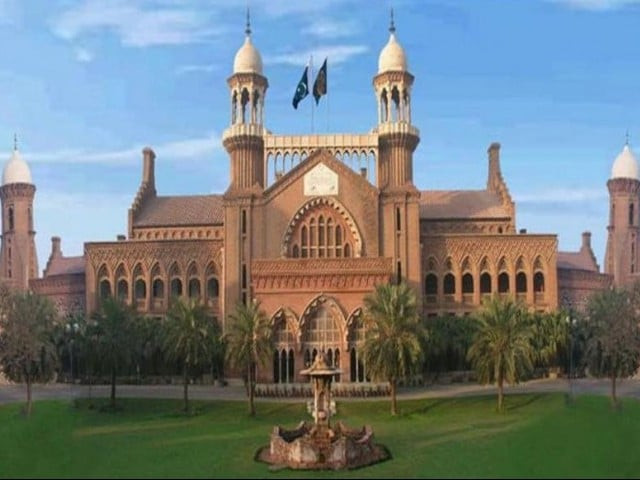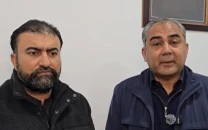LHC seeks progress report on Christian divorce laws
Former CJ had restored section which allowed different grounds for divorce

PHOTO: LHC.GOV.PK
The bench, headed by Justice Ayesha A Malik, was hearing an Intra Court Appeal (ICA) challenging the decision of former LHC Chief Justice Syed Mansoor Ali Shah of restoring a section of the Christian Divorce Act 1869.
Former LHC CJ Mansoor Ali Shah had protected the dignity of Christian women after restoring Section 7 of the Christian Divorce Act 1869. The section stated that if a Christian man wanted to divorce his wife, he could do so without levelling allegations of adultery. The single bench handed in the decision on an application filed by Amin Masih through his lawyer Sheraz Zaka.
In the regime of the then military ruler General Ziaul Haq, Section 7 was abolished through the Federal Revision and Ordinance 1981, while Section 10 was kept intact. Under Section 10 of the Christian Divorce Act, it was necessary for a Christian man to level allegations of adultery on his wife to divorce her. Otherwise, the divorce would not be accepted.
Former LHC CJ Mansoor Ali Shah declared the ordinance of the martial law regime as a violation of basic constitutional rights and set it aside. He restored Section 7 under which several reasons were available to divorce a Christian woman.
In the ICA, the appellant, Emanuel Frances, contended the Divorce Act be restored to its previous form by setting aside the order of the former LHC CJ. The petitioner told the court that that the Bible only allows levelling allegations of adultery as grounds for divorce. He said the divorce would “mature” after a man accused his wife of adultery and produced evidence in support of his statement. He contended the decision of the single bench of former LHC CJ Mansoor Ali Shah tantamount was intervening with someone’s religion. He requested the court that the single bench’s decision be set aside and the section, which provided them an opportunity to level allegation of adultery before divorce, be restored.
The division bench raised a question of whether a judge of the LHC had the powers to restore an in-affective (repealed) law of parliament through his or her decision. Additional Advocate General Anwaar Hussain told the court that the single bench had not restored the whole ineffective law, adding the single bench had just restored a specific section in the light of basic rights described in the Constitution of Pakistan. He further contended that the Christian women could not be left in a state of helplessness if the parliament did not fulfil its obligation. He said the role of the judiciary would come to an end in society if the decision of the single bench was set aside.
Justice Ayesha A Malik remarked they were fully aware of the self-respect of Christian women and the problems faced by them. Punjab Commission on the Status of Women (PCSW) Chairperson Fauzia Viqar told the court that a bill has been submitted in the National Assembly by representatives of minorities to improve matters related to the marriage and divorce within the Christian community. To this, Justice Ayesha remarked that the court wanted a solution to the problem and representatives of minorities in the parliament should think over it.
The lawyers representing the Christian community told the court that the parliament always ignored them.
Justice Ayesha remarked the parliament would play its vital role to find a solution to the serious issue. The division bench adjourned proceedings for three weeks with orders to inform the court about the progress of the bill submitted in parliament.


















COMMENTS
Comments are moderated and generally will be posted if they are on-topic and not abusive.
For more information, please see our Comments FAQ